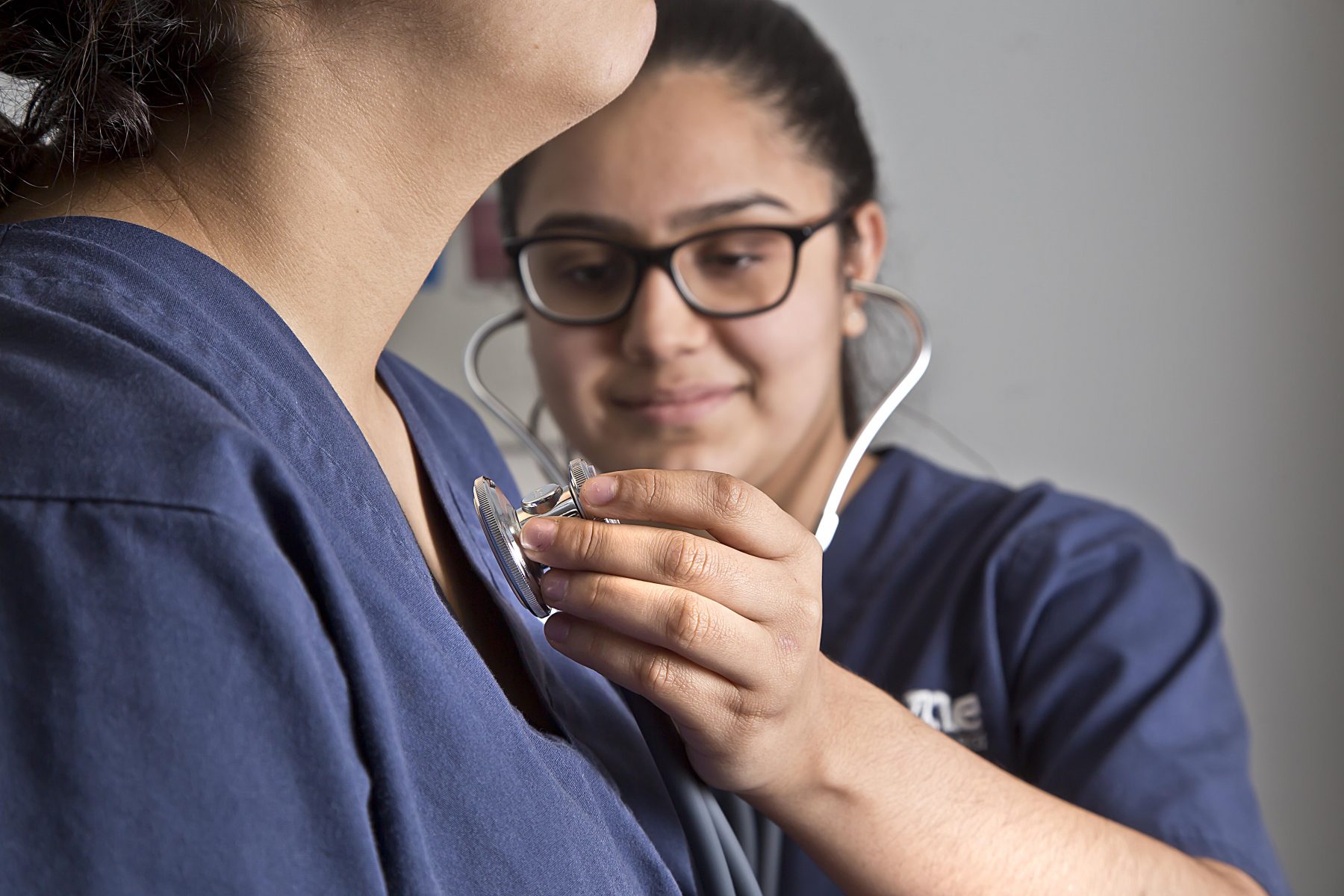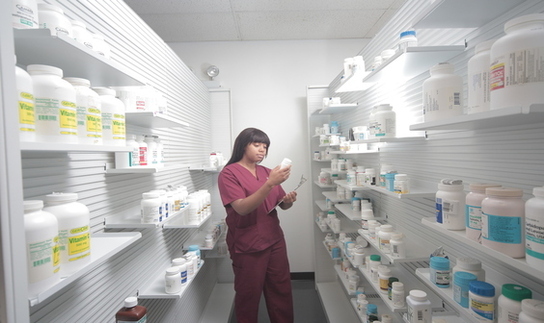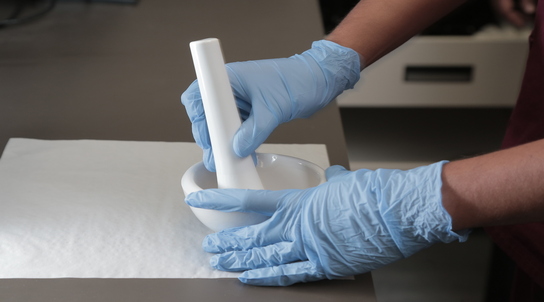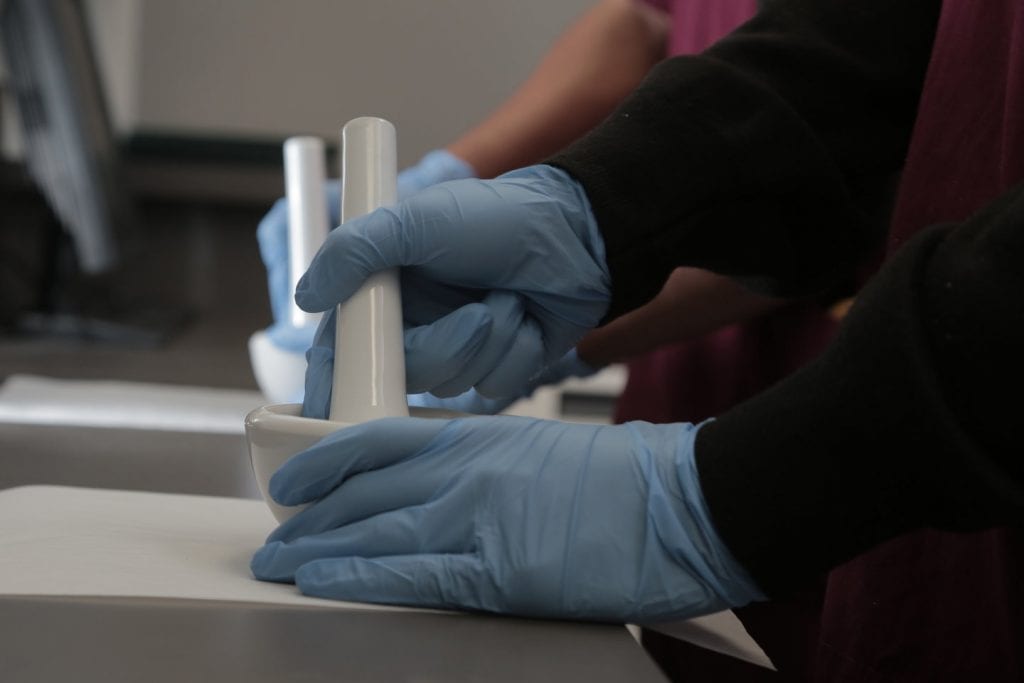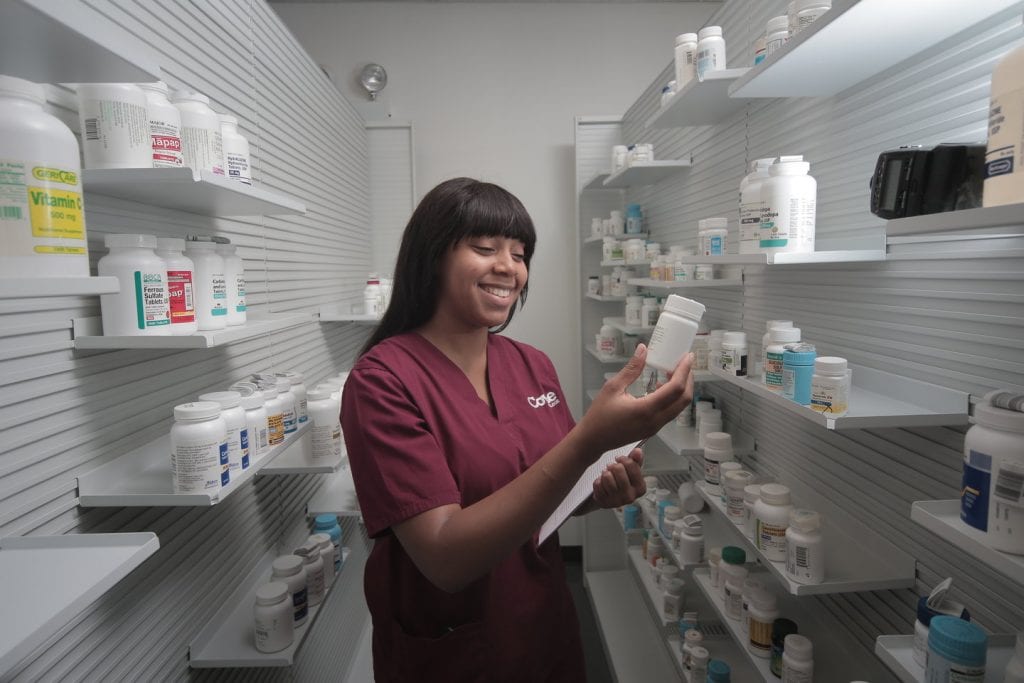Pharmacists and pharmacy technicians are both skilled professions that ensure pharmacies run how they are supposed to and patients receive their proper prescriptions. Each role has its own unique set of qualifications and responsibilities, but what separates a pharmacy technician from a pharmacist? In this post, we will take a deeper look at the differences between a pharmacy technician and a pharmacist.
Duties and responsibilities
Pharmacists are tasked with duties such as filling prescriptions, administering vaccines, instructing patients on how and when to take their medication, and ensuring a patient’s medications won’t clash with each other. Pharmacists are the last line of defense for patients when it comes to potentially harmful drug interactions. They also oversee the work of pharmacy technicians.
Some of the essential duties of pharmacy technicians include packaging and labeling prescriptions, organizing inventory, talking with customers and taking payments. Depending on the employer, the duties of a pharmacy technician may include additional responsibilities.
Vital parts of pharmacy
Pharmacists are well trained in biology, chemistry, physics and other sciences. This knowledge comes into play when ensuring it’s safe for patients to take a certain medication.
Pharmacy technicians work hand in hand with pharmacists and are the ones who handle most of the prescriptions. It takes a team effort to keep a pharmacy running.
Recently, pharmacists have been performing more patient care tasks, such as administering flu shots and providing other patient care services. Because of this, the Bureau of Labor Statistics suggests that pharmacy technicians could be in bigger roles, picking up additional responsibilities pharmacists may no longer be able to cover alone.
For this reason, it is clear that pharmacy technicians are key cogs as far as the vitals of pharmacy are concerned.

Education
On one hand, pharmacists must complete rigorous schooling to get their Doctor of Pharmacy (PharmD.) degree, which typically requires four years of study following two to four years of undergraduate study. Additional work, such as a residency program, may be required, depending on the role the pharmacist is seeking.
Pharmacy technicians, on the other hand, typically need a high school diploma, though it helps to enroll in a trade school or community college program before entering the field. Many states also require pharmacy technicians to pass a certification exam through an accrediting body such as the Pharmacy Technician Certification Board (PTCB).
Time
It takes less time for pharmacy technicians to enter the field compared to pharmacists. While pharmacists are required to attend schooling for multiple years, pharmacy technicians can confidently take a certification exam in as little as 42 weeks after starting a program.
Are you looking to start an exciting career in the healthcare field? If so, becoming a pharmacy technician might be the right choice for you and there’s no better place to get started than at Coyne College.
Become a pharmacy technician at Coyne
Coyne’s pharmacy technician program will help prepare you for a career as a pharmacy technician as you learn the inner workings of the occupation from our experienced instructors. They can provide real-world insight that can help prepare you for the field beyond what is written in a textbook. After all, Coyne College has more than 120 years of experience preparing students in Chicago (like you!) for meaningful careers in a variety of trades.
At the end of the program, which can be as soon as 42 weeks, you will be ready to take and pass your certification exam and start work in a number of pharmaceutical settings.
Financial aid is also available to those who qualify. Coyne also provides career services and job placement assistance to all its students.
Put your passion for helping people to use today by enrolling in Coyne College’s pharmacy technician program. To enroll or request more information, visit www.coynecollege.edu or call (800) 720-3990.








